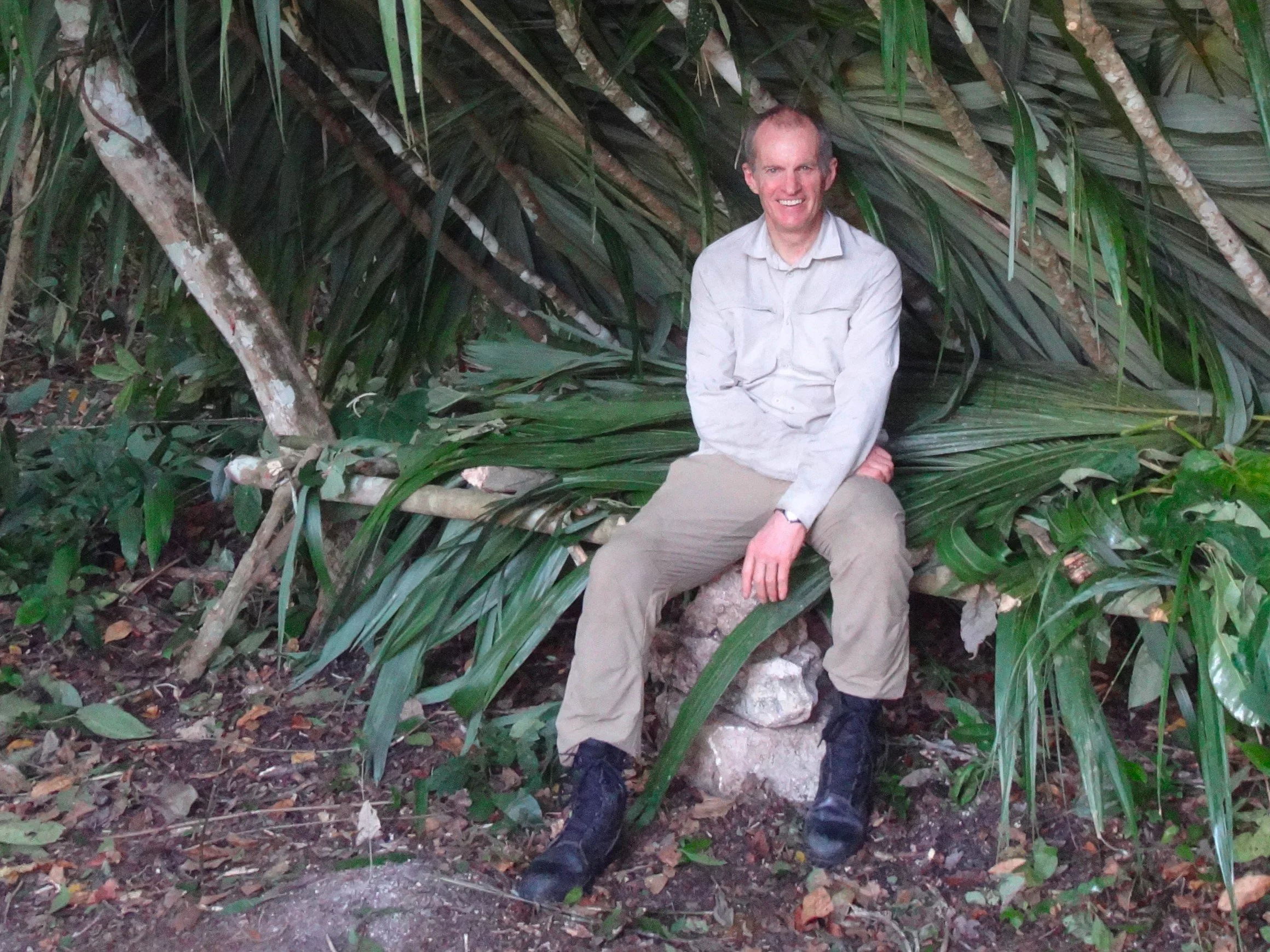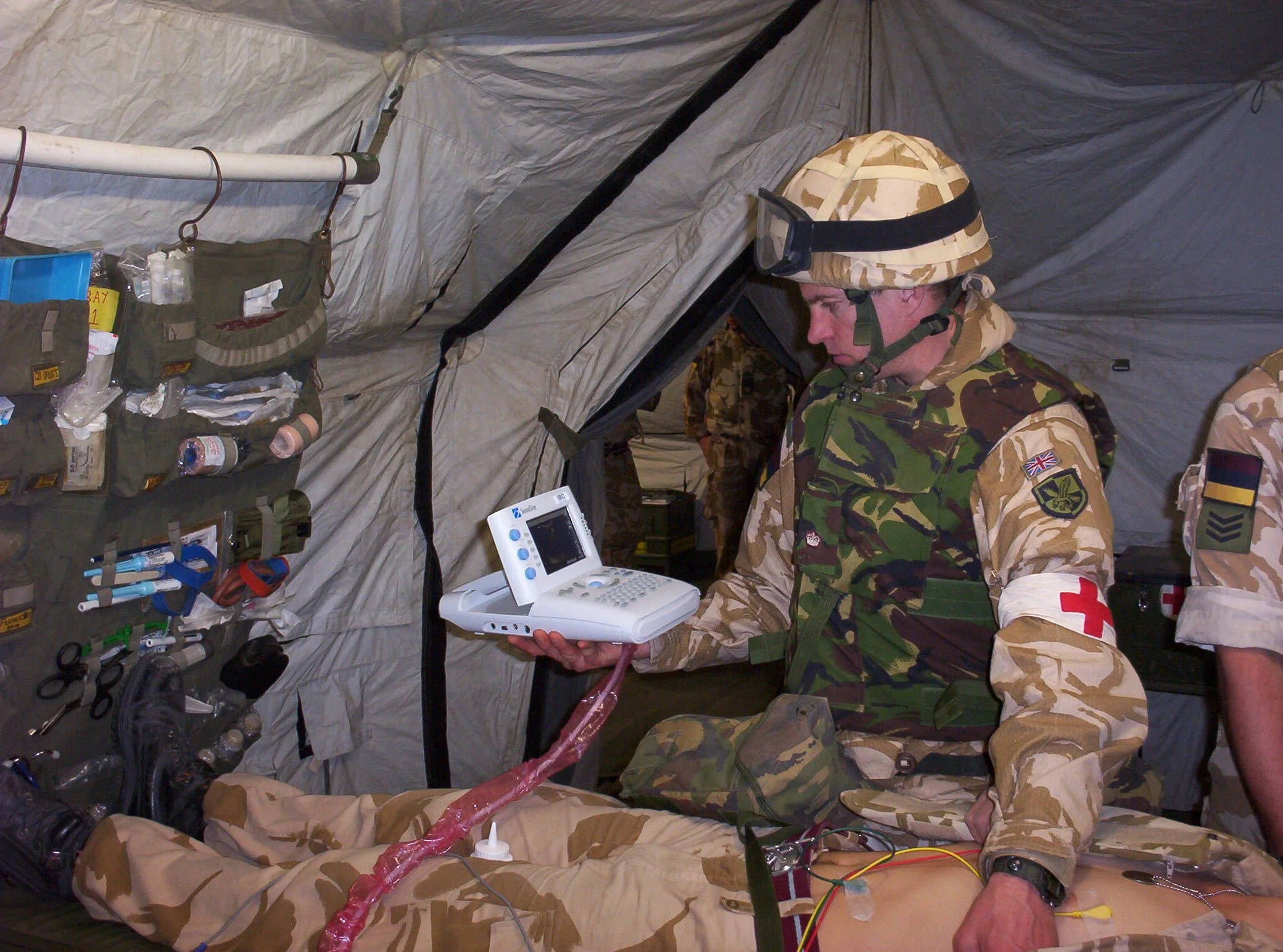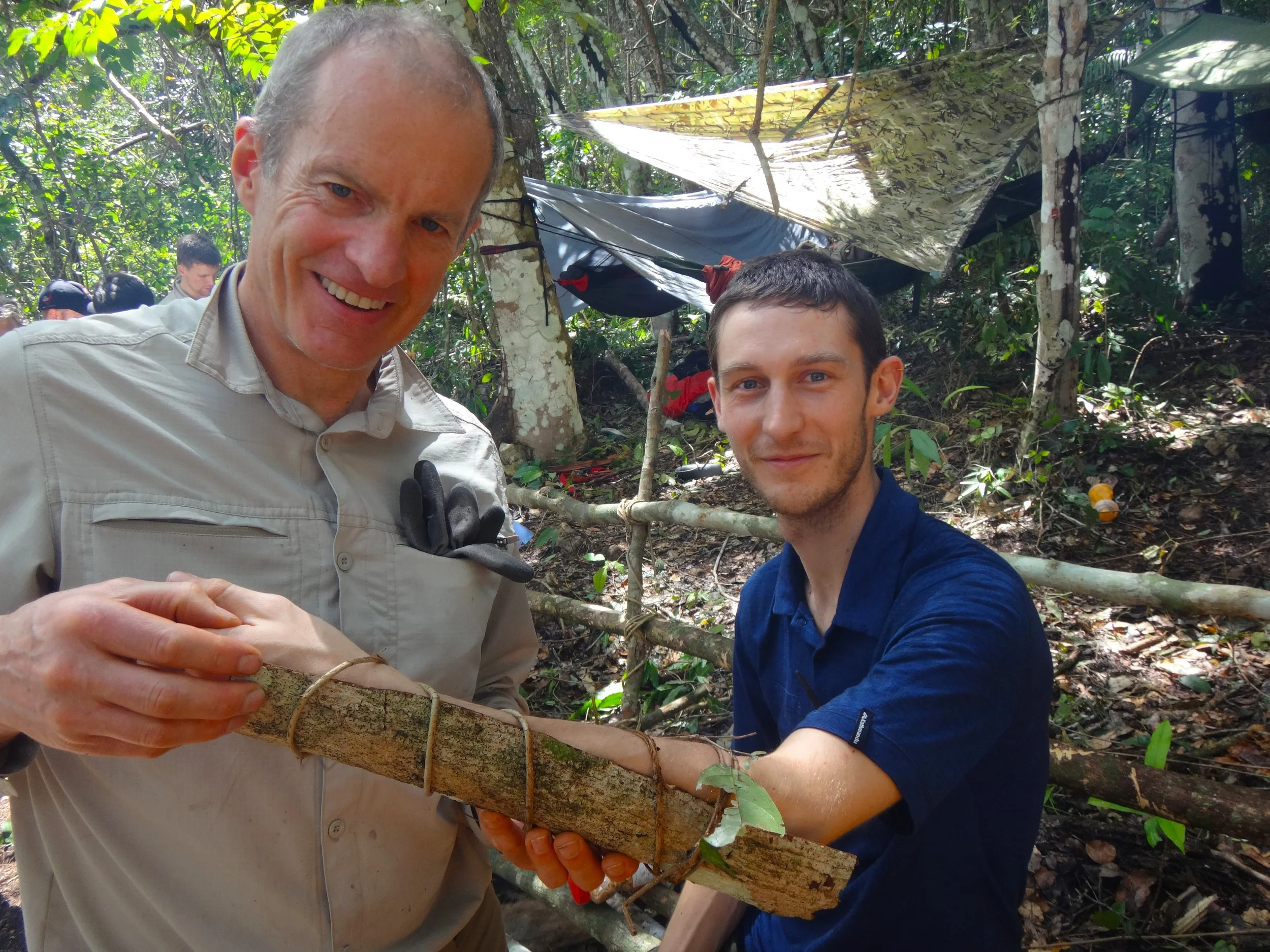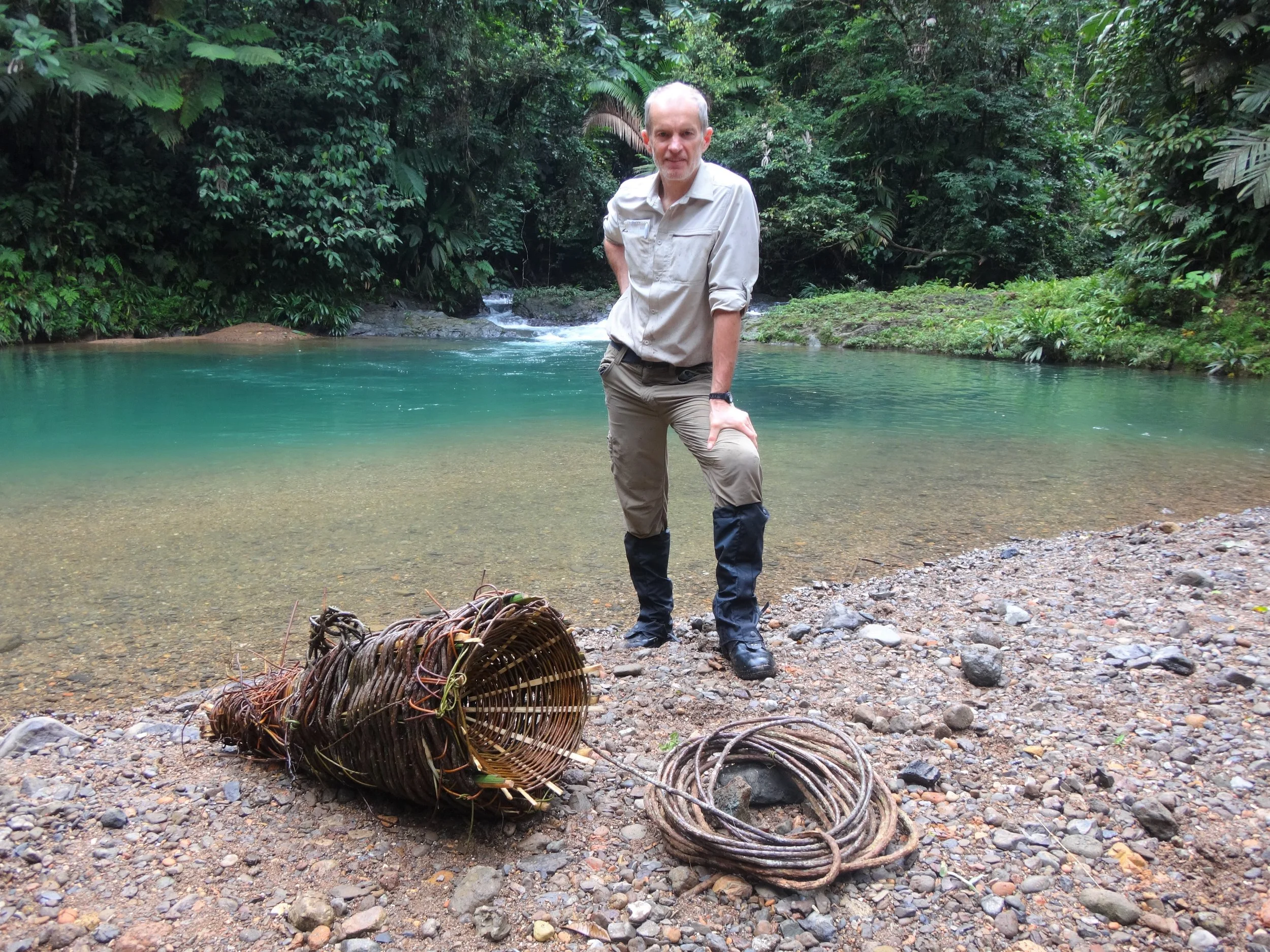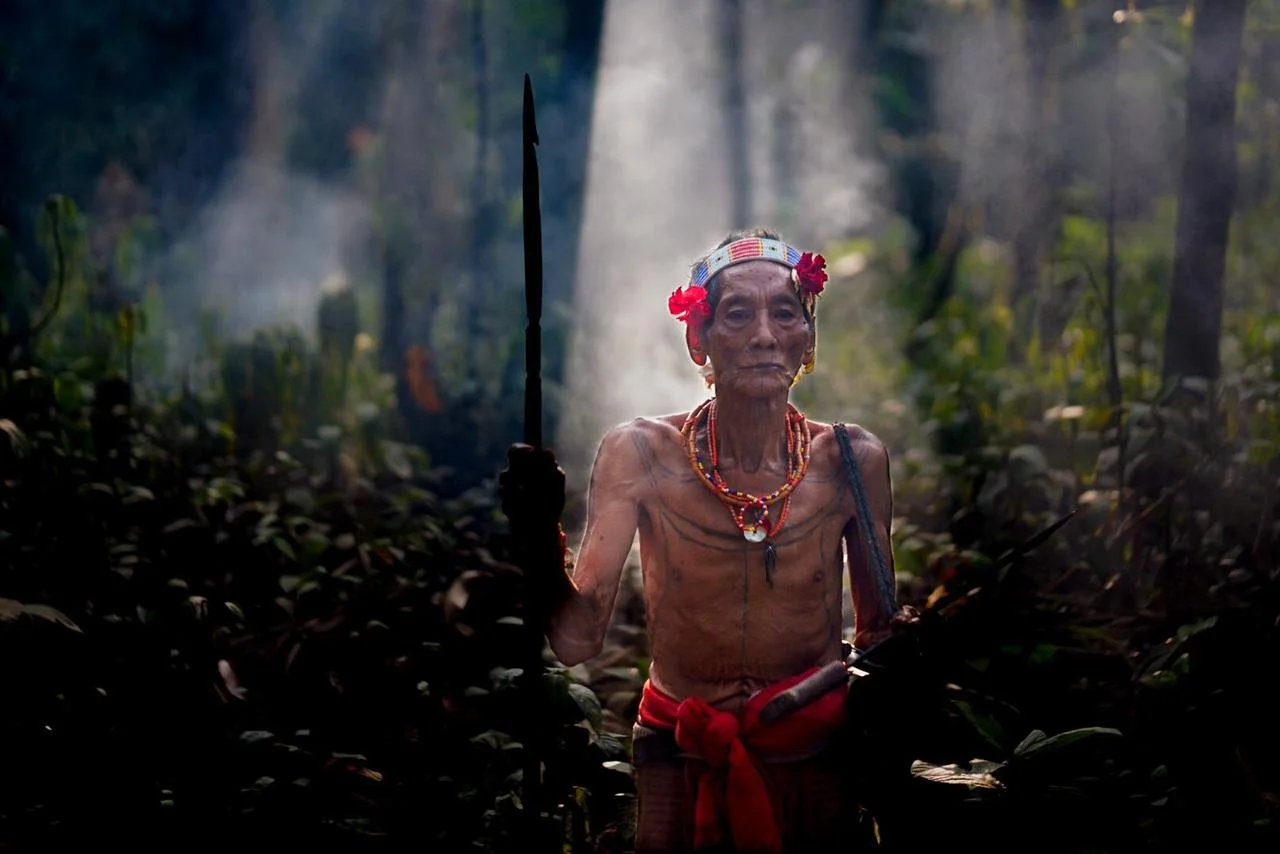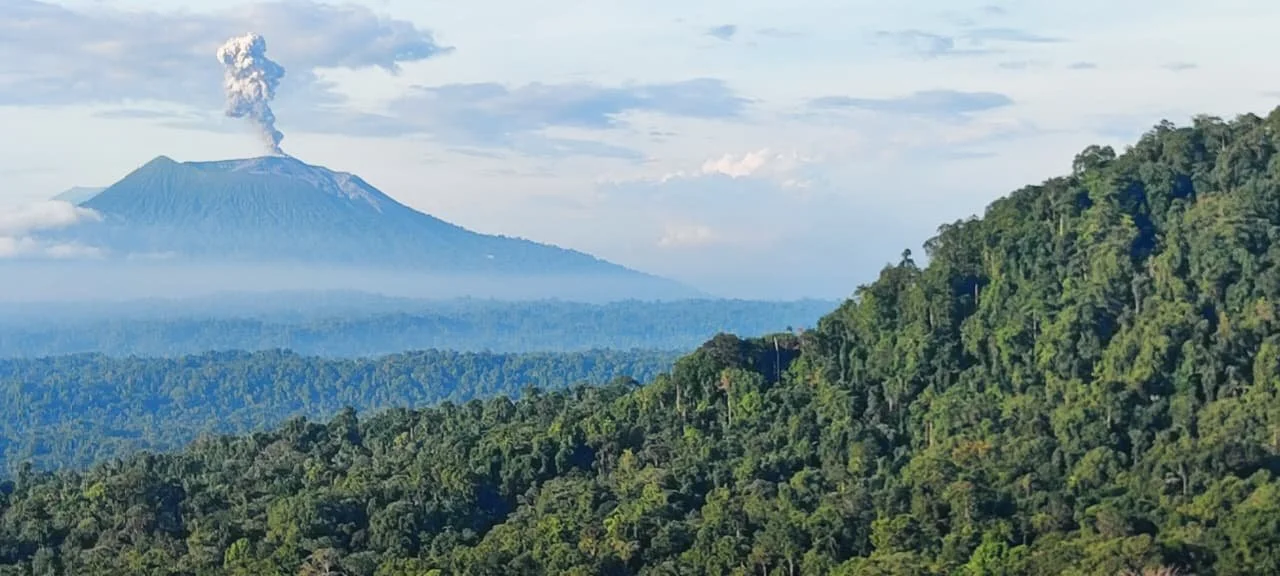Where Medicine Meets the Wild: Lessons from a Lifetime on the Front Lines
At 68, Dr. Duncan Gray might describe himself as “semi-retired,” but that barely scratches the surface of a career spanning over four decades of service, exploration, and education. With 43 years of experience in emergency and wilderness medicine—and time served as both a soldier and doctor in the Airborne Forces in a frontline war zone—Dr. Gray is far from slowing down. He’s shaped the standards of wilderness medical care, mentored countless professionals, and continues to push boundaries in some of the world’s most remote environments.
The Warrior Medic: From the Airborne Forces to the Jungle
Duncan’s path to jungle medicine began in an unexpected place—amid the woods of Scotland, where he grew up immersed in bushcraft before the word was widely known. His professional journey, however, took a more structured form. At 28, while preparing for medical exams, he also pursued selection for the British Special Forces reserves.
“I was always driven by challenges,” he reflects. “It felt natural to train intensely for something so demanding. Studying medicine and preparing for selection—oddly enough—balanced each other out.”
He went on to lead an airborne medical unit and served in the 2002 Iraq War as part of a forward battle group with the Parachute Regiment. In those high-pressure combat environments, he pioneered advanced treatment techniques in basic, austere conditions.
“It was intense—heat, dust, injuries you don’t forget, and long periods without sleep. But it changed how I saw medicine. And it taught me that high-quality care isn’t about the kit you have—it’s about how you think, prepare, and lead.”
A Return to the Wild
After Iraq, Duncan stepped away from the military. Teaching wilderness medicine gave him a new purpose—one that drew on his field experience but brought fresh rewards.
“It felt more human,” he says. “More connected to why I got into medicine in the first place.”
A jungle survival course in Guyana rekindled his childhood love for the woods—only this time, the woods were teeming with snakes, mud, heat, and untamed wildness. The jungle became his new professional home.
“I knew right away,” he laughs. “This was where I belonged.”
Lessons from the Field
Jungle environments are notoriously unforgiving. “It’s not just the heat or the bugs. It’s how easily a small injury—a blister, a nick, a forgotten tablet—can spiral into something serious,” he explains.
One of his biggest messages to aspiring jungle medics is this: Prevention is more powerful than treatment.
“In the jungle, your best move as a medic is stopping problems before they start,” he says. “That means good hydration, hygiene, footwear, self-care, and early intervention. But doing this well often means quietly challenging team norms. You need to be diplomatic and deliberate.”
He tells the story of working with an ultramarathon in the Amazon, where evacuation plans initially relied on runners’ hammocks to carry the injured. Duncan persuaded the organizers to put stretchers on checkpoint vehicles instead—a simple change that could have saved lives.
Calm in Chaos
Duncan has a remarkable ability to radiate calm under pressure, which he says is partly about mindset—and partly about being honest with yourself.
“In the jungle, you might find yourself managing something far beyond your level of training. That’s okay. What matters is recognizing it, thinking clearly, and using your resources—including your team.”
He recalls treating a twisted ankle on a failed jungle summit in Myanmar. “He couldn’t walk, and we were out of food. But I assessed the injury carefully, used the Ottawa rules, and—critically—I sounded convincing. That gave him the confidence to hobble out with the group.”
This is a theme he returns to often: Confidence and cohesion matter as much as clinical skills. A jungle medic needs to inspire trust, communicate clearly, and foster a sense of shared purpose—even when things go sideways.
Trauma, Teamwork, and the Human Side of Medicine
In prolonged care situations, Duncan focuses on building cohesion and purpose. "Everyone can contribute—even those who aren’t good with blood or needles. Camp duties, making stretchers, comfort care—it all matters.”
He believes in protecting the psychological health of the group by assigning roles that reduce exposure to trauma, while also keeping people engaged.
“I also avoid making anyone feel like ‘the patient.’ I want them to feel useful, supported, and still part of the team.”
That compassion extends to mental health support. He encourages open-ended questions and careful listening: “Don’t force someone to talk. Be there. Be present. Sometimes that’s enough.”
What Sets a Jungle Medic Apart
Duncan believes that becoming a competent jungle medic starts with being competent in the jungle. That’s why he became a Certified Jungle Guide—and why he encourages every medical provider to understand the environment first.
“You can’t treat well if you can’t look after yourself. You have to know the terrain, the risks, how to move, eat, sleep, and lead in the jungle. That knowledge transforms how you approach medical care.”
He emphasizes that many jungle illnesses are more about behavior and systems than medicine alone. “A dehydration headache? Fix the water system. A festering cut? Fix the hygiene and kit setup. Environment shapes outcomes.”
Learning from Locals, Respecting Indigenous Wisdom
Duncan is clear: working in the jungle without listening to local people is not just risky—it’s disrespectful. “Not tapping into local expertise is one of the great historic mistakes of expedition medicine,” he says. “Indigenous knowledge isn’t just useful—it’s vital. It shows respect. It can change your whole approach.”
He describes how even the smallest updates from locals—such as a new hotspot for snake activity, or a river crossing that’s become impassable—can completely reshape your risk planning. “You can spend weeks preparing, but then someone tells you the trail you’re counting on was destroyed by last week’s storm. Or there’s a fever going around in a nearby village. These updates can save lives.”
It’s not just logistics. Duncan points out how traditional transport methods, herbal knowledge, and warnings about local illnesses give medics an essential context. “If you ignore these systems, you’re missing half the picture. Jungle health isn’t just about what’s in your med kit. It’s about relationships, listening, and understanding what survival really means in these environments.”
He adds, “Respecting local knowledge is also how you earn trust. It’s how you show people you’re not just another outsider. And when that trust is there, the quality of care—and the success of the expedition—goes up dramatically.”
The Passion Continues
After decades of jungle missions, medical emergencies, and teaching under pressure, what keeps Duncan coming back?
“The students,” he says with a smile. “Their questions, their passion, their growth. When I see someone switch on—that moment where they really get it—that’s what keeps me going. It never gets old.”
For Duncan, teaching is more than passing on knowledge. It’s a way to shape future leaders, especially those stepping into high-risk environments. He’s particularly motivated by the younger generation of medics, guides, and veterans who are entering the field with open minds and real drive.
When asked what advice he would give to someone considering work in jungle medicine or guiding, Duncan doesn’t hesitate. “Do it. But get good at both. Medicine and guiding. One without the other won’t cut it. You can be the best medic in the world, but if you get lost, your patient’s not getting out. You can be the best guide, but if someone’s choking and you freeze, that’s it. But both together? That’s where the magic happens. It’s incredibly rewarding.”
Final Reflection
There’s one story Duncan often uses when teaching—an incident that captures his philosophy better than any lecture or textbook could.
It happened during a solo jungle survival course in Guyana. Duncan was alone, practicing skills, when he slipped and cut his knee open with his own machete. “I was too excited, rushing, not focused,” he recalls. “It was a humbling lesson.”
Faced with the decision to tough it out alone or call for evacuation, Duncan chose to call for help. “It was the right call. But it wasn’t easy to make. That moment taught me a lot about ego, decision-making, and what it really means to lead in a high-stakes environment.”
He now uses that story in nearly every training course. “It’s about behavior, risk, medicine—and most of all, attitude. It reminds people that no one is above the jungle. The moment you stop respecting it, it will humble you.”
Where to Find Him
Duncan doesn’t spend much time on social media - He’s too busy getting out there. You can find his most recent publication here: A regional modification to the Revised Swiss System for clinical staging of hypothermia including confusion | Scandinavian Journal of Trauma, Resuscitation and Emergency Medicine | Full Text
Duncan oversees all of our medical information and training globally, and you can likely join him in person on one of our upcoming Wilderness First Aid Courses - Stay tuned for more!
Please Like and Share - It really helps us!


